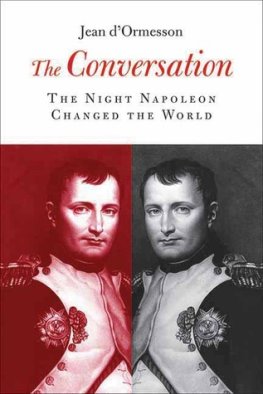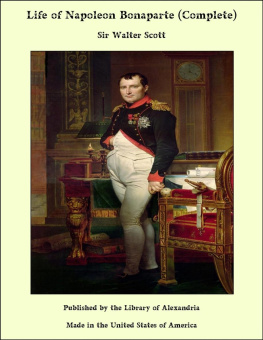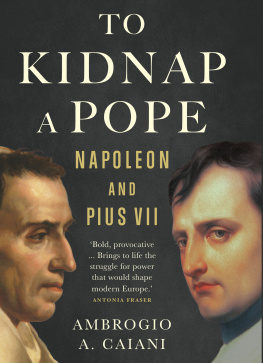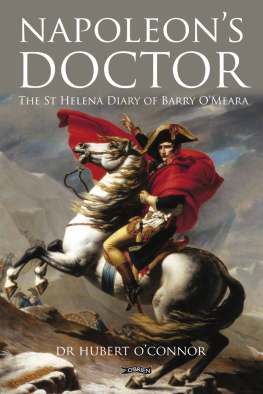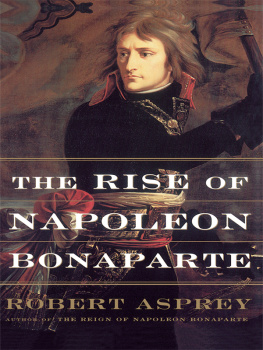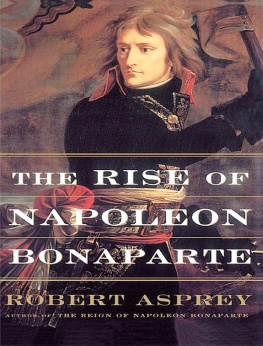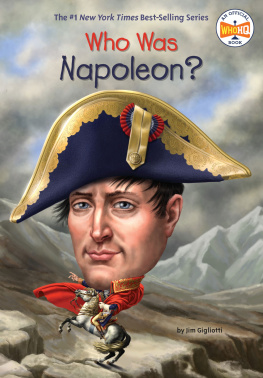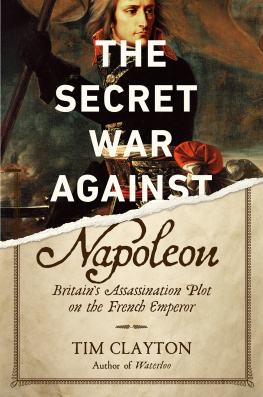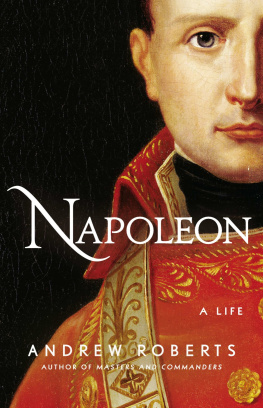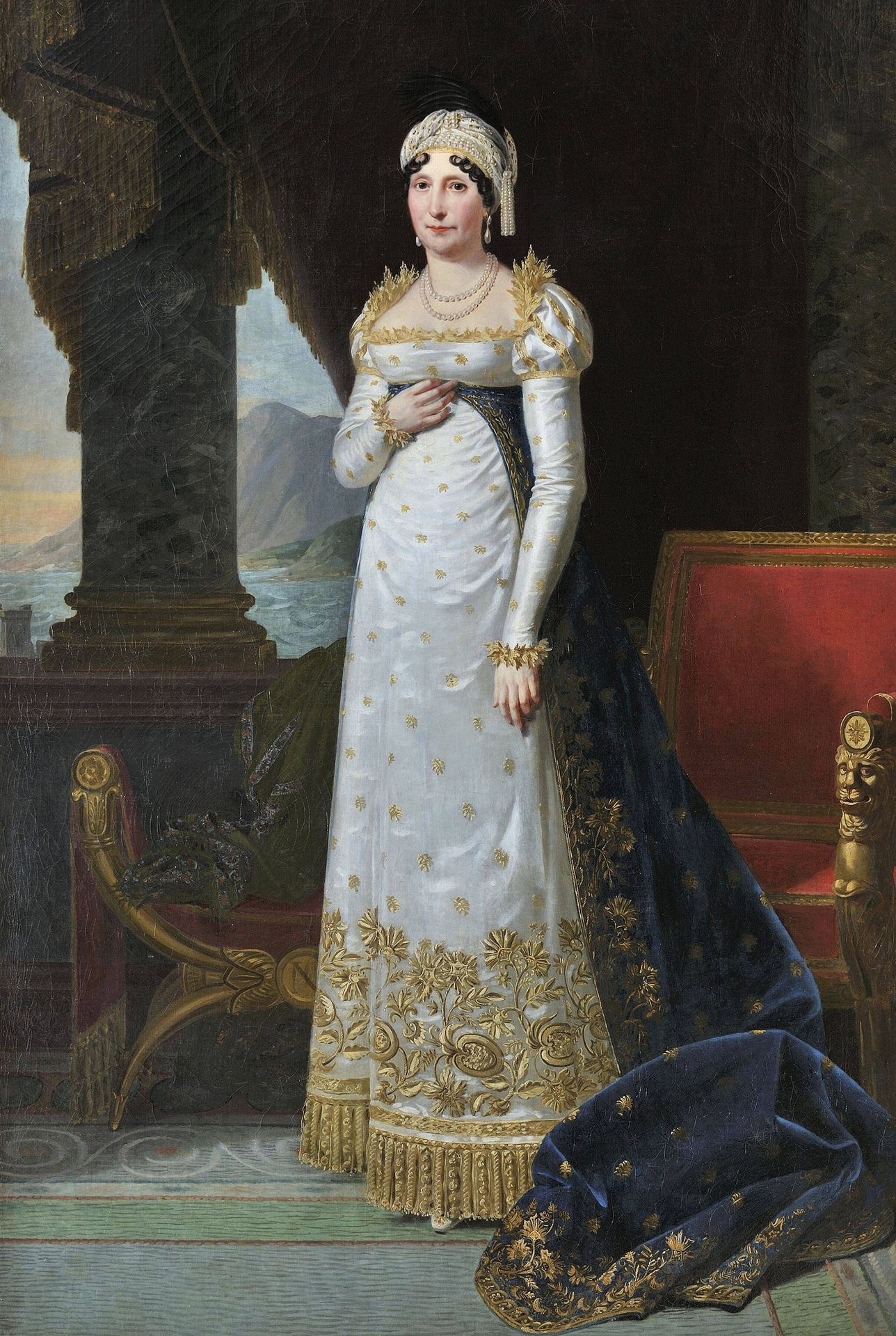Napoleon
The True Story of the Life & Time of Napoleon Bonaparte Emperor of France
The History Journals
Liam Dale
Copyright 2019 The History Journals | Liam Dale
All rights reserved.
No part of this book may be reproduced in any form or by any electronic or mechanical means, including information storage and retrieval systems, without written permission from the author, except for the use of brief quotations in a book review.
Contents
Napoleon
S ince the beginning of time there have always been leaders to emerge from the masses, and a few rise to such prominence, that long after they have departed the battlefield of life, their memory is preserved down through the ages, for each new generation to discover. One of the most famous amongst these heroes of history is Napoleon, who is to this day still known the whole world over, and whether his name is uttered with reverence due to the great mans undoubted military genius, or suggestively, with an attempt at a French accent, the image of a diminutive, rather rotund figure in a sweeping grey coat and fancy hat will most probably spring to mind. Yet finding the man behind the myth is a more difficult task altogether. Many thousands of books have been written about Napoleon, but as is so often the case with historic icons, opinion varies considerably.
On the one hand Napoleon can be considered a truehearted and patriotic revolutionary with a tantalizingly tactical brain, exceptional leadership qualities, a mastery of combat skills, an ability to organize and finance better than any Government administrator, and a natural affinity for military strategy, that was, quite literally, beyond compare.
Then on the other hand, some would, quite justifiably, brand Napoleon a bully and a tyrant, who possessed a ruthless and cynical desire for power and violence, along with an inflated ego that colored judgement and persuaded him that he could do no wrong, as seems to be wont of just about every military dictator, before Napoleon, or, for that matter, since.
Either way, there is no denying that Napoleon Bonaparte was (and still is) a giant figure in the history books. And, for those of you who know a little about him and are willing to challenge the usage of the word giant, then drop anchor at once. For, Napoleon was not a short man, as history would have us believe. When he died, the official measurement of his height was 5 foot 2 inches but this was taken in French measurements. On the Imperial scale, widely used throughout the world, that measurement comes out as 5 foot 7 inches. Rather than being short, this numerical anomaly made Napoleon taller than your average Frenchman of the period. Another reason why Napoleon is often perceived as a vertically challenged leader is due to a nickname given to him, Le Petit Caporal . Anyone with a smattering of French will tell you that Petit means little, in the French language, but this interpretation was in fact an affectionate term reflecting Napoleons camaraderie with his ordinary foot soldiers, and his lack of pretensions with his fighting men.
Regardless of which version of Napoleon is to be believed, evil dictator or inspiring military leader, or perhaps more likely, somewhere between the two, this journal will look at his truly fascinating and eventful life, following his progress from the wildly beautiful Island of Corsica to his coronation as the Emperor of France and final defeat at the Battle of Waterloo.
But were getting ahead of ourselves, something that our history journal subject was very good at.
Napoleon was evidently so eager to get into this world and start living it his way, that his mother, Letizia, gave birth to him immediately after returning from Mass, on a downstairs sofa, before she could even reach her bed. This auspicious day was the 15th of August, in the year 1769. Napoleon Bonaparte was born in the town of Ajaccio, on the island of Corsica, which is located west of Italy, southeast of France and north of the island of Sardinia. Its the fourth largest island in the Mediterranean Sea and in the year of Napoleons birth it was taken over by France and claimed as a French Region. Originally it had been ruled by the city of Genoa, in Italy.
Maria Letizia Buonaparte (Photo: The Footage Library)
Letizia was only nineteen years old when she gave birth to Napoleon and he was her second son; she had a total of thirteen children of whom only eight would survive to adulthood. She had married Carlos Bonaparte, when she was a mere fourteen years of age, five years before Napoleons birth. Carlos came from a family of minor nobility and was an attorney by trade. He was also the representative for Corsica in the court of King Louis XVI of France.
Carlo Maria Buonaparte (Photo: The Footage Library)
Of Napoleons parents, Letizia was certainly the dominant influence, with Carlos away for long stretches of time with his duties to the court of King Louis XVI and his studies at the Corsican University. Letizia, despite her youth was a strong-willed woman, who was very strict with her children. When Corsica was taken over by France, the French language was installed as a pre-requisite for all the inhabitants. Letizia never spoke a word of French throughout her long life, bringing up her children the same way.
Napoleon himself never fully mastered the language because of this and spoke French with a heavy Italian accent, pronouncing certain words as if they obeyed Italian rules of phonetics. Letizia was also obsessed with cleanliness and bathed her children every day. By todays standards, this is perfectly normal, but in the 18th Century, even the Upper Classes only consented to a bath once every month, and sometimes not even that.
Because of his well-connected and moderately noble family status, Napoleon was afforded easier access and greater opportunities to study when he came of age, than other Corsican children as at a very young age he set foot on French soil, entering a military academy at Brienne-le-Chteau. The academy had been a monastery a mere three years earlier, teaching religion. Its military teachings were hardly of the highest standards as it was a school that was still run by monks, who adhered to their long-established religious ethos.
The purpose of the academy was to prepare the sons of the nobility for eventual cadetship in the armed forces - a Cadet was the term for an officer in training but the education provided was more akin to raising an 18th Century gentleman in manners and etiquette rather than for leading soldiers into battle.
However, Napoleon spoke fondly of his time there, which is probably since the school was neither strict nor particularly competent coming across in the reports of frequent official inspections as a cross between a prison, a circus and a holiday camp. The official reports varied from stating the teachers and the students were lazy and careless, until one such report in 1787 recorded outright indiscipline as its verdict.
Even the religion was poorly taught, and legend has it that the Berton Brothers who ran the academy as Principal and Vice-Principal would efficiently execute morning Mass in ten minutes flat. Much later in life, the Principal Louis Berton was saved from poverty by Napoleon, who gifted him a job in educational administration. Such acts of kindness by Napoleon were not infrequent and are often overlooked when he is painted as a tyrannical dictator. Napoleon was complex, complicated and ever changing, something that those close to him had to get quickly accustomed to.


